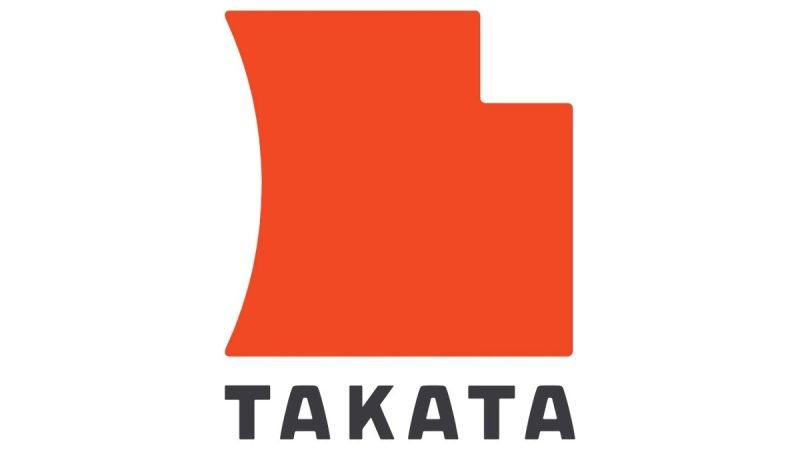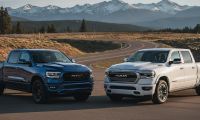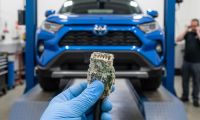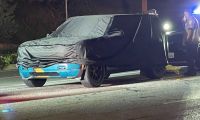It is something when an automaker tells customers to park their cars and stop driving them. This is the picture that BMW is drawing for owners of 90,000 2003 to 2006 models. BMW has asked the owners of these vehicles to park them and stop driving after finding that they are equipped with faulty front airbag inflators made by Takata, a now-bankrupt former manufacturer of airbags and accessories.
Longtime Issue Claimed Manufacturer
BMW isn’t the first automaker to feel the sting of this ongoing safety issue. This issue goes back more than 20 years to 2001-2003 Honda Civics and Accords equipped with front airbag inflators made by the same manufacturer. At that time, Takata was the second-largest airbag manufacturer in the automotive world. Indeed, Honda had a minority interest in the troubled airbag manufacturer and used Takata airbags and accessories exclusively for many years. The relationship continued until about 2015, when Honda severed its relationship with Takata.
The problem with Takata front airbag systems revolved around the propellant used to inflate them. Takata was the last airbag manufacturer to rely on the explosive ammonium nitrate to inflate its products. The problems with its frontal systems were exacerbated by the location of two major manufacturing plants in Mexico and the environment.
According to probes by the NHTSA – there were at least two significant probes into Takata airbag products in 2015 and 2016 that resulted in two of the most significant fines ever levied by NHTSA for safety violations – the airbags were susceptible to moisture invasion because they were poorly sealed. A secondary problem with these airbag inflators and housings was that they were also loaded with dirt and debris from manufacturing. The quality assurance system was entirely broken in these plants. A third problem was the location. Because the plants were located in a hot, humid climate, they were susceptible to problems related to this environment.
NHTSA ordered that Takata replace these faulty systems with systems that fully met the nation’s Federal Motor Vehicle Safety Standards (FMVSS). For its part, Takata did try to rectify the situation with designs that it believed would meet FMVSS standards. The automaker tried four different designs, and none of them worked. The reason is evident in 2023, though it wasn’t eight years ago when NHTSA began its significant problems. As noted, two of Takata’s major manufacturing plants were in Mexico. The plants had significant failings in quality assurance and control, and even though the manufacturer was trying to meet NHTSA orders, after paying more than $300 million in fines, it could not.
Environment Contributed To Problem
Aside from manufacturing issues, NHTSA found that the environment. where the airbag inflators and housings were made also contributed to the problem. Indeed, when the agency, shortly before the manufacturer’s bankruptcy, sat down with Takata and other airbag manufacturers who promised to pick up a significant share of the recall load, the safety agency indicated the extent of the recall. Vehicles equipped with Takata-made airbag inflators and housings housed in warm, humid areas such as the southern states, especially those that touched the ocean plus western states, were found at the most significant risk for airbag inflator and housing failures. The safety agency also found that vehicles in the U.S. trust and territories such as Guam and Samoa were also likely to have airbag inflators that were likely to fail.
The safety agency also found that specific models were likelier than others to fail. The specific models included the 2001-2003 Honda models already mentioned and small Ford Ranger pickups, which were also impacted by the recall.
The safety recall, which was to become the largest in history, involved the behavior of compromised ammonium nitrate. As ammonium nitrate spoils, it gains a not-so-friendly property. It becomes stronger. So, those inflators equipped with ammonium nitrate became much more dangerous if they failed to moisture intrusion. This meant that when they were deployed, the inflators and housings became involved in the problem as the housings shattered, sending shards of metal scything through the interior of vehicles like shrapnel from exploding shells. The results were fatal for at least 32 vehicle owners worldwide – including more than 25 in the U.S. More than 400 operators were also seriously injured by the flying metal shards. The safety issue has now involved 20 major vehicle manufacturers, 55 million vehicles, and 77 million airbag inflators worldwide.
The latest episode of this continuing safety recall – it was supposed to be complete by now – involves BMW.
According to various news outlets, including Road and Track Magazine, CBS, and NPR, the automaker, competing in the electric vehicle realm against the likes of Tesla, Ford, General Motors, Hyundai, and others, the automaker didn’t have a choice. The German automaker has told the owners of 90,000 to stop driving their vehicles because they are equipped with defective Takata front airbag inflators and housings.
Drivers Told To Park Vehicles
According to a blast by NHTSA, BMW owners were told to park their vehicles immediately and contact the manufacturer for more information.
"BMW has issued a 'Do Not Drive' warning today," the National Highway Traffic Safety Administration (NHTSA) said in a notice. "Owners of these vehicles should park them immediately and contact BMW for more information."
The automaker issued a “dire” warning about these vehicles up to 22 years old. BMW has said that the vehicles involved in this “do not drive order” are equipped with some of the oldest Takata airbags involved in the recall. BMW noted that there is an extreme likelihood that the airbag inflators will fail in a crash, exposing drivers to potentially fatal consequences.
In an interview regarding these inflators, Sophie Shulman, deputy NHTSA administrator, said: "If you have a model year 2000-2006 BMW with a recalled Takata airbag, get it repaired immediately – for free. These inflators are two decades old now and, with every day that passes, they become even more dangerous as they can rupture even in a minor crash.”
Recall Repairs Are Free
According to the company and NHTSA, replacement parts are free for this recall, which is NHTSA’s policy. The safety agency has urged owners of older BMWs to see if this recall has been completed. You can find this information at the agency’s website, www.nhtsa.gov. If you find that there is still an open recall regarding this issue, owners have been urged to contact a local dealer of BMW customer service to have it completed immediately. The automaker is so concerned about this issue that it offers free towing or mobile repair to complete the recall.
Models involved in this “do not drive issue” include:
- 2000-2006 BMW 3 Series, including the M3
- 2000-2003 BMW 5 Series, including the M5
- 2000-2004 X5 Series
Besides BMW, Fiat Chrysler, Ford, Honda, Mazda, Nissan, and Toyota have also carried out mass vehicle recalls due to the Takata airbags.
Senior Torque News Writer Marc Stern typically follows Ford. However, he has followed the ongoing Takata airbag recall since it appeared in automotive headlines nearly 20 years ago. Stern has been an automotive writer for various outlets for many years and has been concerned with automotive safety for years.
Takata Image
Marc Stern has been an automotive writer since 1971 when an otherwise normal news editor said, “You're our new car editor," and dumped about 27 pounds of auto stuff on my desk. I was in heaven as I have been a gearhead from my early days. As a teen, I spent many misspent hours hanging out at gas stations (a big thing in my youth) and working on cars. From there on, it was a straight line to my first column for the paper "You Auto Know," an enterprise I handled faithfully for 32 years. Only a few people know that I also handled computer documentation for most of my earnings while writing YAN. My best writing, though, was always in cars. My work has appeared in Popular Mechanics, Mechanix Illustrated, AutoWeek, SuperStock, Trailer Life, Old Cars Weekly, Special Interest Autos, etc. You can follow me on: Twitter or Facebook.
Set Torque News as Preferred Source on Google











